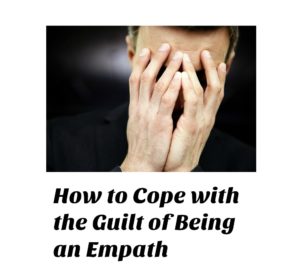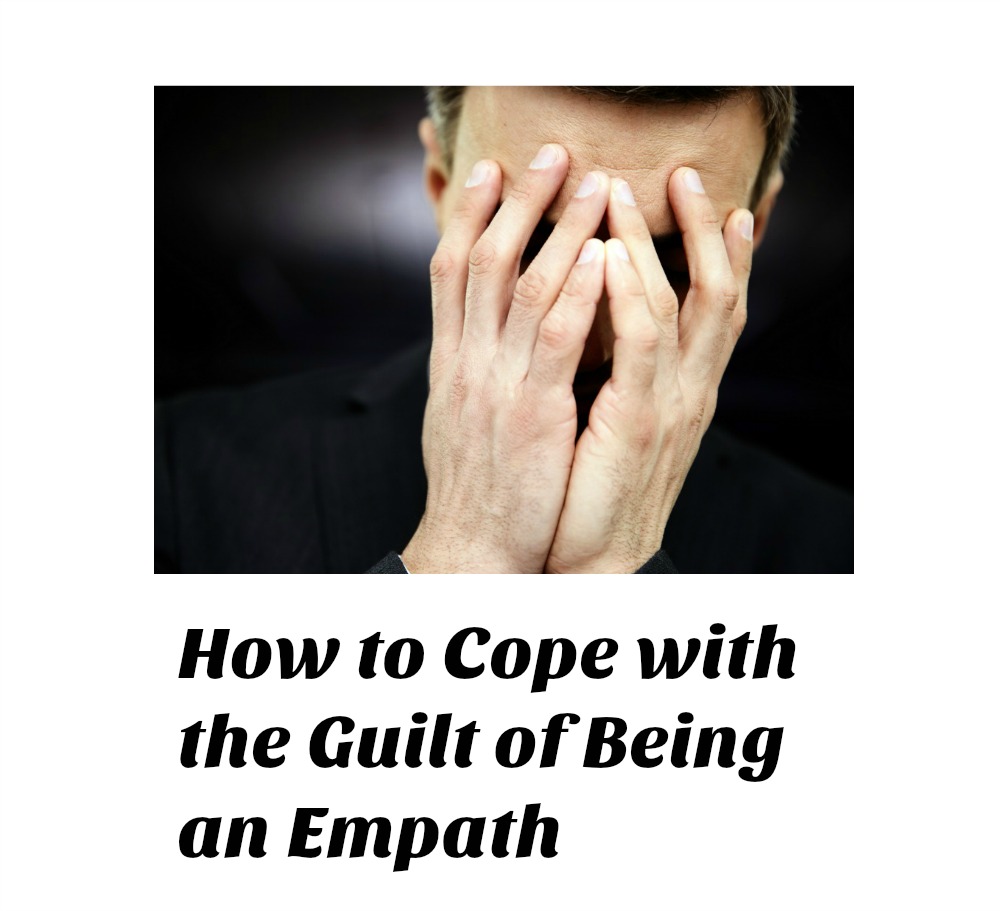 Empathy is a common psychic ability. I’m not talking about simply being understanding of other people. I’m talking about taking on the thoughts and feelings of others, which is what empaths experience every day. If you are an empath, you have the psychic gift of clairsentience. You feel the energy of others, and feeling is the way that you pick up psychic information. While there are many benefits to being able to feel whether a situation is good for you or not, when you receive psychic information in this way you must consider what it can do to your energy. If it doesn’t feel good to you and you want to pull away from certain people, you have to watch out for empathic guilt.
Empathy is a common psychic ability. I’m not talking about simply being understanding of other people. I’m talking about taking on the thoughts and feelings of others, which is what empaths experience every day. If you are an empath, you have the psychic gift of clairsentience. You feel the energy of others, and feeling is the way that you pick up psychic information. While there are many benefits to being able to feel whether a situation is good for you or not, when you receive psychic information in this way you must consider what it can do to your energy. If it doesn’t feel good to you and you want to pull away from certain people, you have to watch out for empathic guilt.
Being an empath can feel good when you are around people who are happy, joyful and uplifting. However, it can be hell to be around people who are angry, moody and perennial victims. People like that literally can drain the energy out of you. One of the keys to empath health is minimizing your time with those who drain you.
As an empath, you may feel the need to stay away from certain people or to minimize your contact with them even if they did nothing wrong.
- You may flinch when their name shows up on Caller ID.
- You may dread the family dinner where you have to spend time with this person.
- You may go out of your way to avoid being alone with them.
- You may wait before leaving your house because the friendly neighbor that drains you is raking leaves outside.
If any of these behaviors sound familiar to you (they all sound familiar to me), you may find yourself putting off returning the phone call or putting off the get-together. That can lead to another problem: what to do with empathic guilt.
Not sure if you’re an empath? Click here for more signs that you are an empath.
What is empathic guilt?
As an empath, we may find ourselves in a dilemma. Others may want to be around us and soak up our positive energy, but we may feel drained when we do so. Do we choose them or us? So many of us choose them. We feel like we’re being unreasonable or being a bad friend if we don’t spend time with this person. In many cases, there is no logical reason that we should want to stay away from them; we simply don’t like how they make us feel. We don’t like feeling worse after spending time with them. Or we may enjoy them in small doses while they may want to see more of us. When we say ‘no’ to their requests to talk or spend more time, we may experience empathic guilt.
But empathic guilt is detrimental to empath health. It is never a good idea to let other people’s needs override our own, but for empaths it can be even more harmful. Since we’re dealing with the effects of energy and we’re literally allowing ourselves to be drained, allowing guilt to cause us to do things we don’t want to do can hurt us in the long run.
How to lose empathic guilt
If you are an empath who is feeling bad because you don’t want to spend so much time with someone who drains you, there are a number of things you can do.
Come up with a compromise. Instead of avoiding the person entirely, cut down on the time you spend with them. That way you are less likely to feel guilty since you are still prioritizing the relationship.
Find ways to buffer the interactions. Sometimes someone can be more draining when we’re around them one on one. In that case, plan outings with other people or plan an experience like a movie where you don’t have to interact as much. That way you’re spending time with the person while protecting your energy. You’ll also have less reason to feel guilty.
Use energy protection techniques. If you have to be around someone who drains you, make sure you take some time to raise your energy. Meditation is a great way. another way is to visualize yourself surrounded by a protective bubble that keeps your energy from being drained without your permission.
The best solution is to get comfortable saying ‘no.’ In fact, learning to say ‘no’ is one of the most empowering skills you can cultivate and it is a helpful practice to promote empath health. Start with little things that don’t matter so much. Saying ‘no’ is like a muscle. The more you flex that ‘no’ muscle, the easier it is to say.
